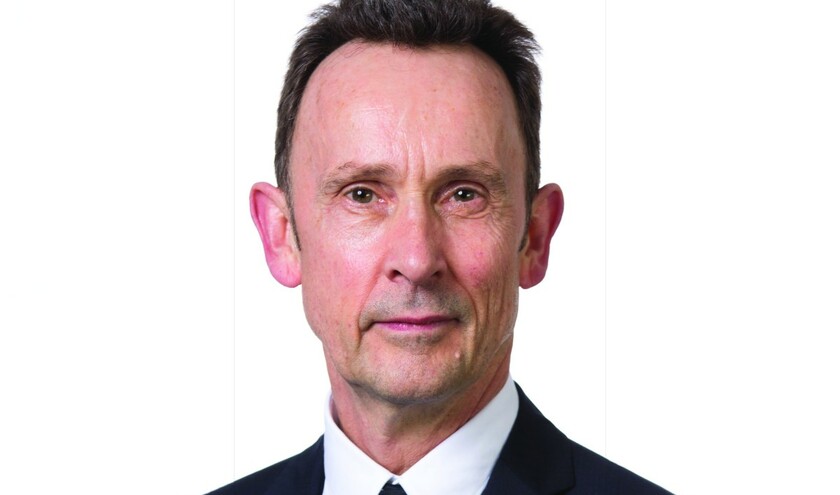If you think things are tough in health and social care today, just wait - they're going to get a lot tougher. So, if we really want things to change, we need to get on with it. Now.
So says, Professor Graeme Betts, former acting chief executive of Birmingham City Council, a social care leader, now an honorary professor at the University of Birmingham.
Betts understands the reluctance. ‘Politicians are nervous. Wes Streeting is mulling over having a national cross-party approach. Don't mull it over. Just get on with it. This isn't hard, especially doing it now, four or five years out from an election. You don't need another commission. We don't need it. The work is there. Do it now – and get everybody involved. People will tell you what's needed.'
Betts thinks cross-party support is critical. But it's essential to move on from politics as usual. The minute something gets labelled in a way that impacts on electoral support, it dies a death, eg The Dementia Tax.
‘They need to sit down and talk about it. I think it's a national disgrace that we are not addressing the reform of social care on a cross-party basis by asking "what do we need to do to act sensibly and collectively to address this major challenge?"'
Prof Betts is wary of talk about structures. ‘We've got to stop focusing on structures. The number of away-days and conferences that you attend to help develop the new system, the new approach – it's just a complete distraction. It takes time and energy to set it all up just for it to be kicked into touch four years later.'
Besides new systems can create unhelpful churn: ‘In local government there was Total Place and for NHS, it was World Class Commissioning. But these ideas don't change anything. You've got to get right down to the grass roots, get investing in there and you're in the services. And you'll begin to see that money having an impact on people's lives.'
But action is needed now. ‘We are caring for more people with complex needs. The number of people suffering from dementia is growing all the time but it's not the only issue affecting older people. There's a massive and largely unrecognised dependence on informal care. There is a limit to what can be achieved in acute care. So, we need to look at the balance of funding and recognise that there needs to be investment in social care. This can be a very labour-intensive part of the health and care economy.
‘At the moment, there's an imbalance in the system. The NHS is still receiving funding and adult social care is just taking those horrific hits so you have a high degree of imbalance in the system.
‘It's important that society commits to treating people who are older with dignity. Then we look at how we can fund it, and to make sure the wages go in the pockets of workers. It's got to get to the frontline. Then you can have sensible conversations about a career in care – "I came in as a care worker and now I'm the director of a care company."'
But money is only part of the solution. ‘If you go back to the last Labour Government, Gordon Brown did bring spending levels up to comparable nations such as Germany and France. But they didn't invest the money in the right place. They basically just funded the NHS acute services to run faster. It was like feeding up a hamster so it was supercharged and could make its wheel spin faster still rather than adopting strategies to get off the wheel.'
Prof Betts says change needs to involve the people whose lives are directly affected, not least because prevention will be a key part of the change needed.
‘We need to shift from treatment to prevention. We need to bring care as close to home as possible. And we need to raise wages in the care sector and make it a career. Until we as a nation begin to value the lives of older people and people with disabilities, we won't value the people that care for them.
‘This won't work if all you do is send out big public health messages and the only people who are listening to them and who do anything about them are the middle classes, who don't need them in the first place.
‘This is not about being a "nanny state"; it's just addressing issues which are preventable and impact on the NHS and social care.'
Betts is not naïve. ‘Of course, given the state of people's finances, some of the foods that they're able to afford can actually contribute to ill-health. But even so, we can all make changes that mean our older lives could be better, healthier. We can all do something about how much we eat, not just what we eat.
‘We need to target those messages to help people change their lifestyles – and at a really local level. That is not expensive. Involve people and help them see the benefits. Then they can make changes. It's about mobilising communities to support these things and do a lot of this themselves. This is what we've done in Birmingham on a very small scale – but it's scalable.'
Betts insists it's all doable. ‘I look at what I was doing 30 years ago - we just got on with some of this. In Coventry, we looked at what we spent on learning disability across health and care. We then asked users and community groups what people really needed and then we said, we're going to look at how we can pool money and put it to better use to get improved outcomes. We literally did that for mental health and learning disability without legislation or anything like that.'
Keep it simple: ‘Do your research. Look at the evidence. Build a plan on that and just do it.'
If you would like to appear in The Big Interview email Lee Peart at l.peart@hgluk.com



